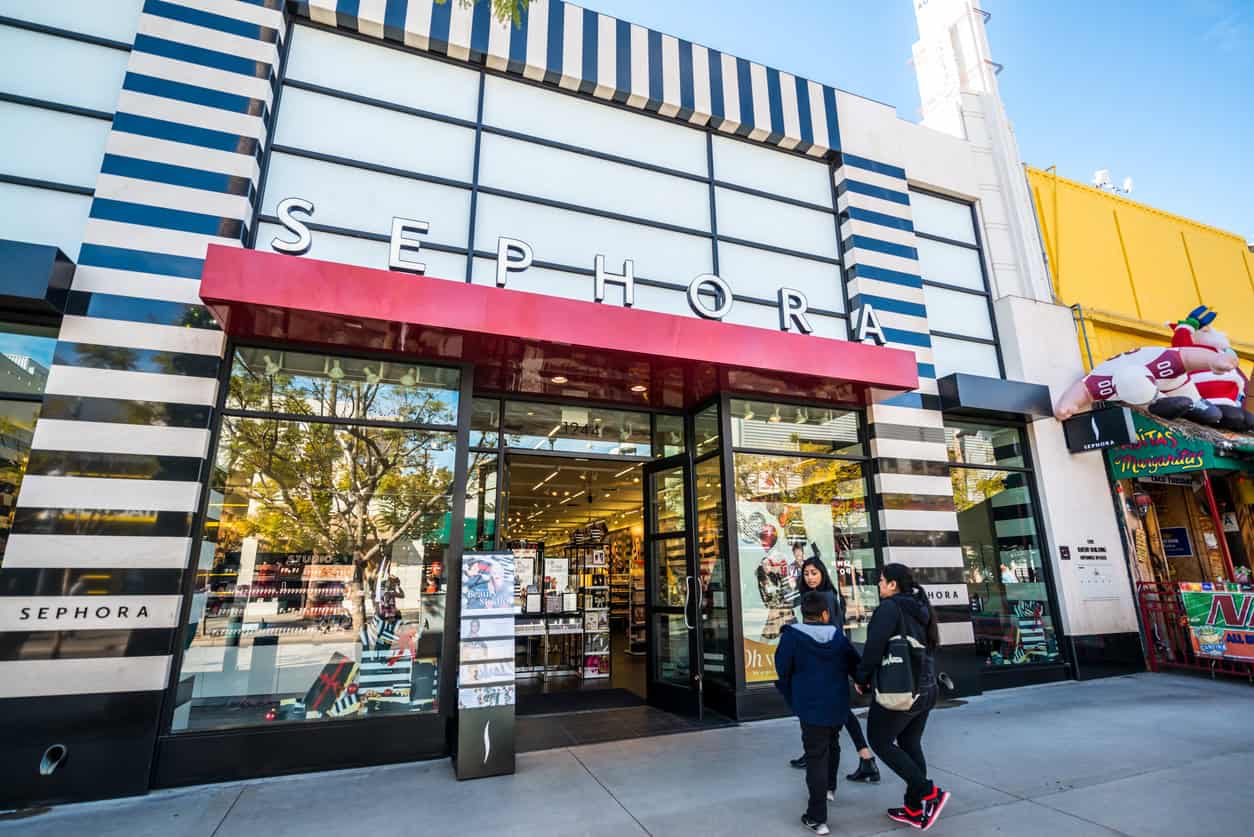
iStock.com/anouchka
Will Sephora’s 4 Ingredients for Success Continue To Work?
Despite being part of LVMH’s selective retailing division, Sephora, the French beauty retailer, rarely discloses the details of its financials. However, Guillaume Motte, the global president and CEO, recently shed light on the company’s growth and shared his recipe for success during his keynote at the World Retail Congress in Paris.
Motte highlighted significant growth rates across various regions:
- North America: 27%
- Europe: 23%
- The Middle East: 28%
- Southeast Asia: 27%
- Latin America: 43%
- China: 2%
Motte emphasized that Sephora’s broad-based growth is a testament to its global success. “We didn’t slightly beat the markets, we smashed some of the numbers. We grew twice to six times faster than the prestige beauty market in most geographies,” he explained.
During the keynote, Motte also shared four key ingredients behind Sephora’s success:
- Product curation: Sephora prioritizes quality over quantity. It curates brands that resonate with the company’s vision, often collaborating closely with brands to foster global growth. Notably, about half of the brands at Sephora are exclusive to the retailer.
- Experience: The in-store experience remains central to Sephora’s strategy. Motte called it “the heartbeat” of the company. With around 200 new stores opening yearly, Sephora believes in creating lively and engaging retail spaces. It incorporates technology, like skin diagnostic tools, to enhance customer interactions.
- Community: Sephora boasts a vast customer base of 160 million, with 60 million being “hyperactive,” according to Motte. The company focuses on creating exceptional experiences for its loyal customers, such as the Sephoria beauty event, which has expanded to global locations like New York, Paris, and Shanghai.
- Team: Motte believes that the team is pivotal to Sephora’s success. “Retail is a people business. People make all the difference,” he stated. With a people-centric approach, Sephora invests in its employees, offering growth opportunities and innovative scheduling, like the move to a five-day workweek in the Middle East, where six days is the norm.
In late 2022, Guillaume Motte was appointed as the new CEO of Sephora, succeeding Chris de Lapuente. With five years of experience at both Sephora and LVMH, including roles as deputy CEO of the LVMH Fashion Group and CEO of Sephora’s Europe and Middle East division, Motte brought a wealth of retail expertise.
His appointment came as Sephora started to expand more aggressively into Kohl’s stores, intensifying competition with rival Ulta. According to Kohl’s, the Sephora shop-in-shops surpassed $1.4 billion in sales in 2023, and there are plans to open 140 new shops by this summer, which will bring the “total Sephora at Kohl’s fleet to more than 1,000 stores and is the latest step in achieving a full Kohl’s chain rollout by 2025.”
Not all has been smooth for Sephora, however. TikTok videos show “Sephora kids,” pre-teens causing disruptions in beauty stores. They pressure parents into buying products promoted by influencers, raising concerns about using harsh skincare products at a young age. Influencer culture and the lack of tween-focused stores contribute to this trend. Calls for age restrictions in stores have grown, but this also highlights opportunities for age-appropriate skincare education.
This year, Sephora has also returned to the UK market after an 18-year hiatus. Previously, Sephora exited the UK “due to market challenges and fierce competition from homegrown retailers like Boots and Superdrug.”
Now, as it re-enters the market, Sephora faces significant challenges, including intense competition from established players and emerging brands like Glossier and Cult Beauty. Despite these obstacles, Sephora’s unique positioning as a one-stop shop for a diverse range of brands and its investment in digital transformation, including AI-powered tools, could give it a competitive edge.
However, maintaining a strong presence in the UK will require Sephora to differentiate itself through unique product offerings, exceptional in-store experiences, and outstanding customer service. With the financial backing of luxury goods giant LVMH, Sephora has the resources to navigate these challenges and potentially succeed in reclaiming market share in the UK.
Moreover, Sephora is exiting the Korean market, phasing out its online shop, mobile app store, and offline store operations starting May 6. Loyalty members will lose unused points, and their information will be deleted. The customer service team will operate until mid-August for returns and refunds. This move comes amid increasing competition with rivals like Ulta, which is expanding into Mexico. Sephora has also seen recent leadership changes globally, including a new CEO for North America and the departure of the head of Greater China.
Discussion Questions
How can Sephora balance localized strategies with its global brand identity for sustained growth?
How can Sephora integrate AI and augmented reality to enhance customer engagement online and offline?
How should Sephora address the challenges posed by influencer culture among younger demographics while promoting responsible marketing practices?
